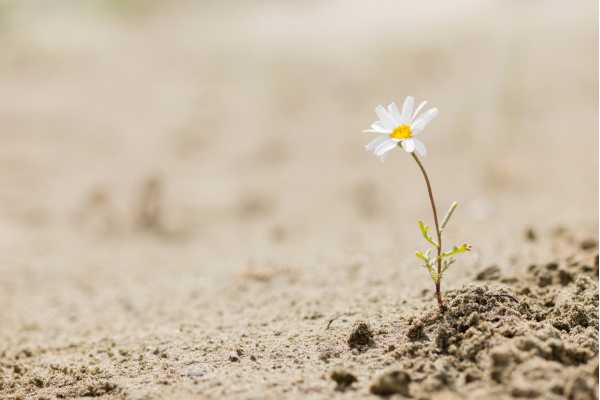In today’s fast-paced world, personal growth and achieving a happy, prosperous life require more than just individual effort. While much attention is given to professional success and self-improvement, the role of family in shaping who we become is often overlooked. Family interactions—through communication, support, and shared experiences—play a crucial role in personal development, offering the foundation for emotional resilience, goal-setting, and lifelong learning.
This article explores how family dynamics influence personal development and offers practical strategies to nurture growth within the family unit. By fostering positive relationships at home, every family member can thrive, and the family as a whole can grow together.
What is Personal Development and Why Does Family Matter?
Personal development is the lifelong process of improving yourself—whether by acquiring new skills, setting and achieving personal goals, or enhancing emotional and mental well-being. It’s an ongoing journey that requires commitment, reflection, and the support of those around you.
But when we talk about personal development in the context of family, it takes on an even deeper significance. Families serve as the first environment where individuals learn values, behaviors, and life skills. A family’s members are more likely to succeed as a unit than as individuals when they get emotional support, encouragement, and growth chances.
The Family as a Foundation for Growth
Families offer a nurturing environment where personal development can flourish. Through consistent support, positive role modeling, and a shared belief system, families lay the groundwork for long-term personal growth. Some of the key roles family plays in this process include:
- Emotional Support: Family members often serve as our primary support system, helping us navigate difficult times, build resilience, and gain confidence.
- Values and Beliefs: The values instilled by family shape our worldview and guide our decision-making. These core beliefs form the basis of personal growth.
- Role Models: Parents, older siblings, or even extended family members act as role models, demonstrating behaviors, attitudes, and work ethics that younger family members often emulate.
- Opportunities for Growth: Families provide unique opportunities for learning and development, whether through shared experiences, travel, or exposure to new ideas and activities.
In essence, families have the power to influence who we become. By creating a supportive environment, they can foster personal growth that benefits both the individual and the family as a whole.
How Positive Family Interactions Promote Personal Development
The key to fostering personal development within a family is through positive interactions. Healthy communication, mutual respect, and trust form the backbone of these interactions, creating an environment where each family member can grow.
1. Effective Communication as a Growth Tool
Effective communication is essential in every kind of connection, but it’s particularly important in family relationships. Family members are able to communicate their feelings, discuss difficulties, and provide support when they have candid and open talks. Developing good communication in your family can be accomplished as follows:
- Active Listening: Instruct all family members to engage in active listening, which is concentrating on what is being said without interjecting. This fosters empathy and helps people feel heard and valued.
- Expressing Emotions Freely: Establish a secure area where family members can communicate their emotions without worrying about being judged. This is essential for emotional growth and strengthening family bonds.
- Resolving Conflicts Constructively: Disagreements are inevitable, but how they’re handled makes all the difference. Teach family members to resolve conflicts calmly, focusing on understanding and mutual respect rather than blame or criticism.
By prioritizing communication, families can create a nurturing environment that promotes both personal growth and stronger relationships.
2. Building Trust and Mutual Respect
Each strong family relationship starts with mutual respect and trust. Every participant feels appreciated and supported in the safe environment they establish. Develop mutual respect and trust within your family:
- Be Consistent: Consistency in words and actions builds trust over time. Family members should know they can rely on each other for emotional support, reliability, and encouragement.
- Encourage Honesty: Promote honesty in all interactions. When family members feel they can speak openly without fear of being judged, trust naturally grows.
- Respect Boundaries: Personal space and boundaries should be respected within a family. Recognize and honor each family member’s preferences and needs, whether it’s physical space or emotional boundaries.
In a family built on trust and mutual respect, individuals feel more secure in pursuing their personal goals, knowing they have a dependable support system.
Practical Steps to Encourage Personal Development in the Family
Creating an environment that promotes personal growth within the family doesn’t have to be complicated. Here are some practical steps you can take to foster both individual and collective development.
1. Set Personal and Family Goals
One of the most effective ways to encourage personal growth is by setting and achieving goals. When done as a family, this process fosters teamwork, accountability, and shared success. Here’s how to set goals that benefit everyone:
- Identify Shared Goals: Start by discussing goals that will benefit the entire family. This could be something like improving health, saving for a vacation, or engaging in community service.
- Encourage Individual Goals: In addition to family goals, each member should be encouraged to set personal development goals. Whether it’s learning a new skill or advancing in their career, these individual pursuits can be supported by the family.
- Create a Plan Together: Develop a strategy that outlines how to achieve these goals. Include timelines, milestones, and individual responsibilities. Make it a point to regularly check in on progress and make adjustments as needed.
By setting goals together, you foster a sense of shared purpose and create an environment where everyone is motivated to grow.
2. Promote Lifelong Learning as a Family
Lifelong learning is a cornerstone of personal development. By fostering a love for learning within the family, you create opportunities for intellectual and emotional growth. Here are some ways to incorporate learning into your family’s routine:
- Participate in Educational Activities Together: Visit museums, attend workshops, or take online courses as a family. These activities broaden perspectives and can spark meaningful conversations.
- Family Reading Time: Set aside time for reading as a family. Discussing books or articles together can lead to deeper understanding and personal reflection.
- Learn New Skills Together: Encourage the family to pick up new hobbies or skills, whether it’s cooking, gardening, or learning a new language. These shared experiences not only promote personal growth but also strengthen family bonds.
By making learning a family affair, you create a culture of curiosity and growth that benefits everyone.
3. Celebrate Successes, Big and Small
Finally, it’s essential to celebrate achievements—whether they’re personal milestones or family-wide successes. Recognition reinforces the importance of goal-setting and perseverance. Some ways to celebrate include:
- Create a Family Achievement Board: Highlight each family member’s accomplishments on a whiteboard or corkboard. Motivation and a sense of accomplishment can be generated by this visual reminder.
- Host Family Celebrations: When goals are achieved, celebrate together! It could be a special family dinner, a day out, or even just taking time to acknowledge everyone’s efforts and successes.
Celebrating achievements strengthens family bonds and encourages continuous personal development.
Growing Together for a Stronger Future
Personal development isn’t a solitary journey. By recognizing the powerful role that family plays in shaping our growth, we can create a supportive environment where everyone thrives. Through effective communication, mutual respect, goal-setting, and lifelong learning, families can foster a culture of growth that benefits both individuals and the family as a whole.
Start today by putting these strategies into practice, and watch as your family grows stronger, more connected, and more committed to each other’s success. Together, personal development becomes not just an individual pursuit but a shared journey.
Family and Personal Growth – Your Questions Answered
How does family influence personal development?
Families provide emotional support, teach values, and offer role models. These factors help shape an individual’s confidence, decision-making, and overall growth.
Why is communication important for family growth?
Effective communication strengthens relationships, builds trust, and allows family members to express their feelings, leading to a healthier and more supportive environment for personal development.
What are some family activities that promote personal growth?
Activities like goal-setting, lifelong learning (e.g., reading, taking courses), and shared hobbies (e.g., cooking or traveling) foster both personal and collective development.
How can setting family goals help in personal growth?
Setting shared goals encourages teamwork, accountability, and mutual support. This creates a motivating environment where each family member is encouraged to pursue personal development.
How do you resolve conflicts in a family for better growth?
Resolve conflicts through calm discussions, active listening, and mutual respect. Focus on understanding each other’s perspectives to maintain harmony and promote growth for all family members.
Can lifelong learning benefit the entire family?
Yes! Lifelong learning helps families grow intellectually and emotionally. Shared educational experiences, like reading or learning new skills together, strengthen family bonds and promote personal development.
What role do parents play in their children’s personal growth?
Parents act as role models, teaching important life values and providing a nurturing environment. Their support is crucial for helping children develop confidence, resilience, and a growth mindset.

Emily Johnson is a writer focused on personal development, relationships, and well-being. Her articles offer practical advice for self-discovery, growth, and effective communication. With a blend of empathy and expertise, she guides readers toward a more fulfilling and balanced life.

